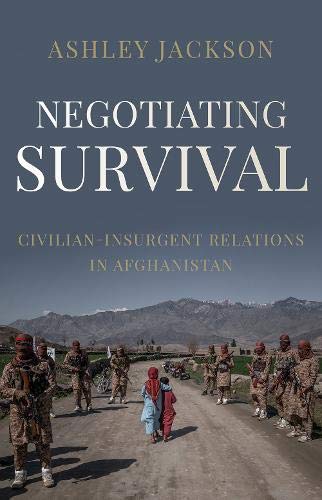-

A note on book covers: while we do our best to ensure the accuracy of cover images, ISBNs may at times be reused for different editions of the same title which may hence appear as a different cover.
Negotiating Survival: Civilian: Insurgent Relations In Afghanistan
Negotiating Survival: Civilian: Insurgent Relations In Afghanistan
Couldn't load pickup availability
Based on over 400 interviews with Taliban and civilians, this book tells the story of how civilians have not only bargained with the Taliban for their survival, but also ultimately influenced the course of the war in Afghanistan. While the Taliban have the power of violence on their side, they nonetheless need civilians to comply with their authority. Both strategically and by necessity, civilians have leveraged this reliance on their obedience in order to influence Taliban behaviour.
Challenging prevailing beliefs about civilians in wartime, Negotiating Survival presents a new model for understanding how civilian agency can shape the conduct of insurgencies. It also provides timely insights into Taliban strategy and objectives, explaining how the organisation has so nearly triumphed on the battlefield and in peace talks. While Afghanistan’s future is deeply unpredictable, there is one certainty: it is as critical as ever to understand the Taliban—and how civilians survive their rule.
Details of Book
A note on book covers: while we do our best to ensure the accuracy of cover images, ISBNs may at times be reused for different editions of the same title which may hence appear as a different cover.

-
One Line Summary
A detailed look at civilian resilience under Taliban rule
-
Who is this book for?
This book offers a rare and insightful perspective on civilian lives in Taliban-controlled Afghanistan, based on extensive interviews. It reveals how ordinary people manage to influence insurgent strategies through their everyday decisions, challenging common perceptions of helpless victims. If you're interested in understanding the complex dynamics of insurgency and resilience, this book provides a nuanced view that is both compelling and enlightening.

